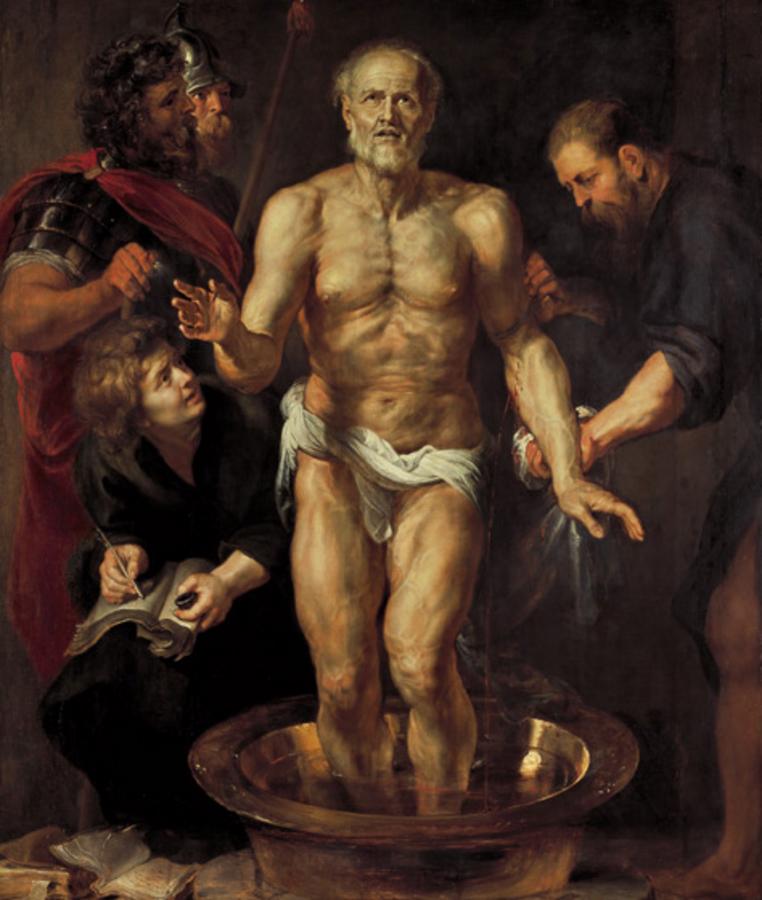One could consider this question an awkward one, since gender and sexual orientation seem to have nothing to do with mathematics. After all, is it not just only about imagination, reason, and proofs of theorems? Each time I am facing such a view point, I can’t prevent me from asking: would you also say that poetry is only about writing poems, that painting is only about painting pictures, that music is only about playing notes, or that philosophy is only about creating new concepts. Not only such reductions are inaccurate, they also constitute strong statements against thinking and its inherent danger. By this, it might in fact be perfidiously stated that mathematics is not an art. A true art always transcends itself and faces dangers. Moreover, without motivations (etymologically what puts in motion), there is simply no art. Motivations connect us with the breath of our soul and they sometimes want to go far beyond what we can conceive or imagine. It is likely a naive illusion to believe that there are only scientific motivations to mathematics. Do we really have to remember that Plato thought that our souls were immortal because they were able to see eternal ideas? Without flying into the Platonic sky, would we be surprised to discover a link between the spectrum of autism and the desire for mathematics? We all have motivations, be they unconscious (like vital trends). Poets commit themselves to resist oppression by expressing unspeakable feelings. In the same way, apparently neutral paintings often send moral messages. For instance, in The Death of Seneca by Rubens, Seneca doesn’t die by his own hand whereas we know that he committed suicide (considered the ultimate freedom for the Stoics).

Suicide was a sin for the Catholic Church. Homosexuality too. By the way, this Church still calls my sexuality « intrinsically disordered« . In the late nineties, this vocabulary has been used by the right wing of the French Parliament to deny the homosexuals the right to contract civil unions. In these dark ages, there were demonstrations where slogans such as « Burn the faggots » were used. I was 16 and starting loving mathematics. Some people fought against my future rights allegedly to protect children, ignoring that their own could be gay. I am 39 and still remember their fear glowing with hate. Being hated is appalling since, in mirror, hate ends up insinuating itself in your heart. This is destructive when you are young, gay, and permeable to homophobia. Fortunately, civil union eventually went voted. Fourteen years later, so was the marriage, after months of demonstrations against an unbearable equality. Let us close this intrinsically disordered parenthesis. Thinking that mathematics should remain pure of commitments gives me a strange feeling. All mathematicians should care of each other. They should understand that we are not all equal and that it matters precisely because mathematics aims at universality. But the magic of mathematics is not enough to make us equal: this would be very naive to think so in a world where a significant number of countries do not protect LGBT people from discrimination or violence. In all North African countries, homosexuality is still forbidden. In Russia, there is no protection, and the recent events even cast a gloomy light on the LGBT-phobia of the Russian state (which should remind us of purges in Chechnya). When I travel for research and that my friend can come with me, I always experience some diffuse feelings: is it safe to go? Of course, no one can be perfectly safe everywhere, but the risks are not the same for everyone. Talking about risks… We know that LGBT people are over-represented in terms of suicide risk, also in France, see the page. I deeply think that suicide is a freedom, but it should not be just a risk involved by a sick society. I have « survived » the social pressures and the risks inherent to my gay condition. However, my life is not the rule: how many of « these people » (as recently said by a French Minister) will we never meet in mathematics? Why should all these potential colleagues or collaborators stay in the limbo? Yes, social selection exists: less than one mathematician over four is a woman, in France. If one really loves mathematics, one wants it to reach its full potential. That is why the mathematical community should embrace actively all the human beings and extends its desire of universality not only to the boundaries of the universe, but also to the boundaries of our eternal (he)art.

P.S. The reader might be interested in the following association: http://lgbtmath.org/ or in the blog https://anthonybonato.com/